The European Commission seeks to maximise the use of ocean data and information, by and for different intermediate and end-users.
From academia and policy-makers, businesses and start-ups, to private and non-profit organisations, user uptake activities target users worldwide.
EU4OceanObs, through its GEO Blue Planet component, aims to increase the technical uptake and promotion of EU initiatives linked to ocean data sharing and the development of societal applications derived from ocean observations. This involves creating synergies with the user uptake activities of Copernicus, and its Marine and Climate Services, and other EU ocean data and sharing infrastructures and portals such as EMODnet, BlueCloud, and SeaDataNet. The development of the European Digital Twin of the Ocean, leveraging all EU assets, science and technology, aims to be a game-changer for ocean science and evidence-based decisions towards a sustainable ocean future. The EU DTO will greatly improve accessibility of ocean knowledge by making marine and coastal data more readily available to citizens, entrepreneurs, scientists and policy-makers and providing them with an innovative set of user-driven, interactive and visualisation tools.
The EU4OceanObs component on the G7 Future of the Seas and Oceans Initiative (FSOI) will facilitate the use of ocean data and information through several activities of the G7 FSOI working group, including the development of demonstration projects for seamless data integration and data sharing, and pilot projects for augmented observatories to enhance regional observing data collection and use.
See how programmes & initiatives funded by the EU are supporting the uptake of ocean data by different users:
1. Uptake by all users
2. Uptake by regions and countries outside the EU
The European Commission through EU4OceanObs seeks to promote EU capacities and best practices in ocean observing to other regions and non-EU countries. This includes increasing the user uptake of EU flagship programmes (Copernicus, Copernicus Marine Service) and data infrastructures such as EMODnet and Blue-Cloud, amongst others. EU4OceanObs also aims to facilitate partnerships and strengthen existing partnerships between the European Commission and non-EU countries and other regions to improve user uptake and enhance the capacity and coverage of the global ocean observing system.
3. Uptake by EU and international decision-makers and governing bodies
The European Commission is also supporting uptake of ocean data to inform International and public policies and also contribute to international objectives and goals, such as the UN’s 2030 Agenda for Sustainable Development.
Through the Copernicus Programme and the Copernicus Marine Service, the EU develops assets for
- EU marine policies, programmes and initiatives,
- Underpinning international legal commitments towards a sustainable ocean,
- Supporting States and local institutions to uphold marine related regulations.
The expertise and products of the Copernicus Marine Service bring value to national services and bodies implementing public policies by supplying scientifically assessed, relevant, and free ocean information. The Copernicus Marine Service produces:
- ocean physics and biogeochemistry data, which are made available to inform reports, statements, guidelines and other policy documents of international governing bodies and organisations. For example, Copernicus Marine Service data has been used
- for the appraisal of several indicators in the WMO Statement on Global Climate
- the Ocean Monitoring Indicators, a growing portfolio of essential ocean variables used to evaluate ocean health,
- the Ocean State Report provides a comprehensive and state-of-the art assessment of the state of the global ocean and European regional seas for the ocean scientific community as well as for policy and decision-makers
- This report was used by the IPCC process to determine the degree of certainty in assessment findings in the IPCC’s special Report on the Ocean and Cryosphere in a Changing Climate
Experts involved in the Copernicus Marine Service also assist international organisations and decision-making bodies through
- Scientific publications in support of ocean data and knowledge contributing to international development goals
- Contributions to reports, guidelines.
- IUCN report on Ocean deoxygenation and the Alarming Consequences
- IOC-UNESCO Global Ocean Science Report 2020, which provides a global overview describing the ocean science capacity status worldwide
- Serving on expert and member panels of the Global Ocean Observing System
4. Uptake by the Civil Society
The European Commission seeks to raise public awareness about the many challenges facing the ocean, and the critical role of ocean data and information in monitoring ocean health, climate change and contributing to a sustainable blue economy. To this end, European-funded infrastructures, programmes, projects and networks carry out various ocean literacy actions to inform the general public on EU commitments to ocean knowledge and sustainable use. These actions include providing access to marine data and ocean literacy information, development of educational tools, holding awareness events, developing partnerships with NGOs to lead awareness programmes, launching youth orientated activities, to mention a few. Through these actions, ocean science and knowledge is shared with civil society. This in turn promotes the uptake of ocean in-formation and derived marine applications, and contributes to global sustainable ocean initiatives.
The EU4OceanObs communication activities aim to raise awareness and build strong public engagement in support of global ocean observations. This includes, showcas-ing what the EU is doing in each component of the ocean observing value chain, from supporting data collection, to sharing data and information and promoting the development of marine applications for societal benefits.
Useful links





